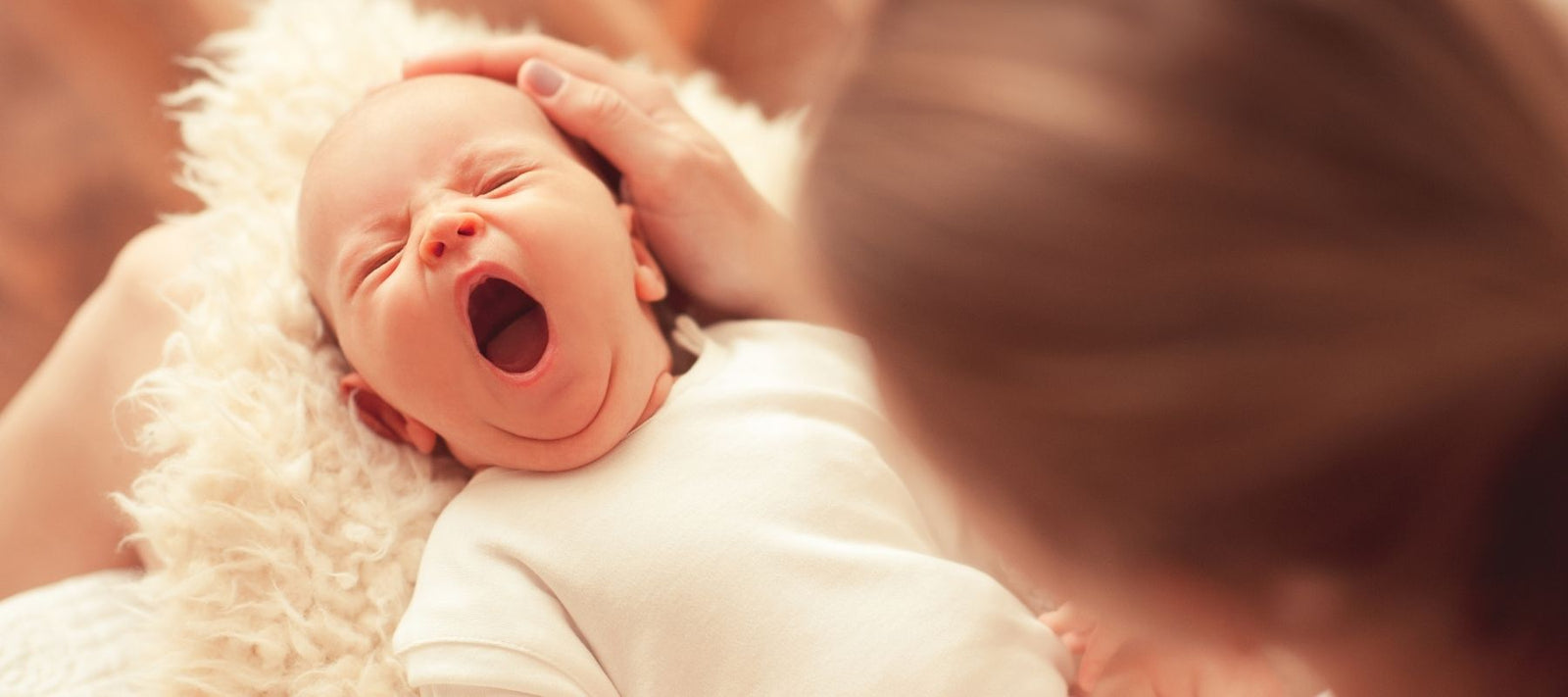Every year in Australia around 300,000 babies are born bringing with them a wealth of joy, love and sleepless deprived nights for new parents. Becoming a new parent is an amazing and exciting experience but it definitely comes with challenges.
Baby sleep patterns are well known for being unpredictable, challenging and no two babies are the same. In fact, new parents miss out on an average of a couple of hours sleep every night, most time more than a couple, in the first year of their new baby's life. Missing out on this much sleep can, understandably, leaves you feeling exhausted, overwhelmed and constantly tired.
Fortunately, knowing what to expect at different stages of development can help you as a parent to prepare for this. This will also help you understand your baby and their needs better. If you want to learn more about your stages of sleep for your newborn, you've come to the right place!
First and foremost, to encourage your baby to sleep and help them to stay asleep, it important to make sure their sleep swaddle, clothes, cot and environment are conducive to safe sleep and eliminate things that could disrupt their sleep or develop sleep problems.
Read on to find out everything you need to know about common baby sleep patterns during the day and night.
General Baby Sleep Patterns to Know About
Okay, you're probably already aware that babies sleep in very different ways to adults. During the first few months of their lives, they should spend more time asleep than awake. But this doesn't always happen.
Newborn babies sleep frequently but for shorter periods of time, an infant sleep cycle is around 40 minutes and it's common for newborns to need help to settle after each cycle. Babies learn to link sleep cycles / self settle over time and sleep for longer periods with different settling techniques and routines that can be used by parents.
Throughout the night, newborns wake often needing to be fed. This is because their stomachs are very small and can only hold a certain amount of milk. So they need to feed (and therefore wake up) more often.
However, as they grow and their bodies start to develop so do their sleeping patterns. Let's take a look at baby sleeping patterns by age.
Baby Sleep Patterns from 0 to 2 Months
From the age of 0 to 2 months, your baby should sleep for roughly 16 hours a day. The should normally sleep about 1-2 hours for daytime naps and nighttime sleeps.
They will go through cycles and stages of active sleep or rem sleep, where they wriggle around, and quiet sleep or deep sleep. As they move between sleep cycles they might wake up and need help settling.
However, around the age of 3 months, a lot of babies start sleeping more at night than in the day. This means they may still wake up during the night but it will be less frequently and the periods of being awake for longer will happen during the day. It is important to try and develop routines that teach your baby when it is day-time and when it is night-time. It sounds silly, but babies don't distinguish between day and night in the first few months.
Some parents choose to start baby sleep training around the 1 - 2 month mark. This approach doesn't suit every parent - the most important thing to do is just to find what works for you and your baby!
If it works for you, this is a great time to start getting your baby used to some sort of sleep routine. For example, you might want to try putting them to sleep at the same "bedtime" every night. Telling stories, playing lullabies, and using a baby sleeping bag are all great ways to encourage sleep association at bedtime.
Baby Sleep Patterns from 3 to 6 Months
From the ages of 3 to 6 months, your baby still needs between 15 and 16 hours of sleep.
However, you should start noticing that more of this happens as nighttime sleep. Some 6-month-year-olds will sleep for up to 6 hours at a time during the night. Most babies still wake at least once a night and need nighttime feeding.
During this period, your baby's day-time sleeping patterns may also start to become more apparent. For example, they may settle into having 2 or 3 naps at regular periods during the day. These often fit in with mealtimes, depending on the rest of your daily routine.
Baby Sleep Patterns from 6 to 12 Months
After the age of 6 months, your baby's sleep patterns can change dramatically. There are several reasons for this:
- Your baby is bigger so can go for longer periods without feeding.
- Your baby may have started eating "solid" foods so will be fuller for longer.
- Your baby will be more mobile so will tire themselves out.
Your baby might still wake up during the night, however, and a lot of babies go through periods of "good" or "bad" sleep every few weeks. These can be known as baby leaps and are associated with their brain and emotional development. Some things that might affect your baby's sleep include:
- Separation anxiety.
- Crawling and being able to move about more in their cot.
- Being more interested in the world around them so that light and noises disturb them more.
These are all signs that your baby is developing in a healthy (and amazing!) way but it can have a "negative" impact on their sleeping patterns sometimes.
During the day your baby will probably drop down to have 1 or 2 naps a day. You might also find that letting your baby nap too late in the day has a big effect on your bedtime routine.
Preparing Yourself for a Baby Sleep Schedule
Every baby's sleep pattern develops differently but almost all of these patterns are challenging for new parents. Waking up once or more every night to feed your baby is exhausting and, over a long period of time, can have a big impact on your health.
This is why it's important to look after yourself as well as your baby.
Try to minimise how much you have to do during the days so that you can rest when your baby does. If you do have a lot on, ask for help where you can so you don't have to handle everything on your own.
If you are concerned about your baby's sleep patterns as they get older, you can also consult a baby sleep specialist. They will have lots of useful information about strategies you can try to help your baby sleep better at night.
Remember This: It's Just a Phase That Will Pass
As you can probably tell by now, baby sleep patterns change a lot during the first year of their lives. This often depends on where they are in their development.
Just try to remember that every baby's sleep pattern changes at a different rate. So don't panic if yours is doing something completely different to someone else in your Mum's group or your sisters, friends or neighbours baby! And during the tough nights keep in mind the mantra "This is just a phase and it will pass" - because, trust us, it will!
To keep your baby cosy at night, check out our lovely collection of blankets and wraps that will keep your little one feeling safe and warm.
Some great resources for baby sleep routines, patterns and help are;
Stanford Children's Health - Infant Sleep
Raising Children - Newborn Sleep
Find more interesting articles to read;

